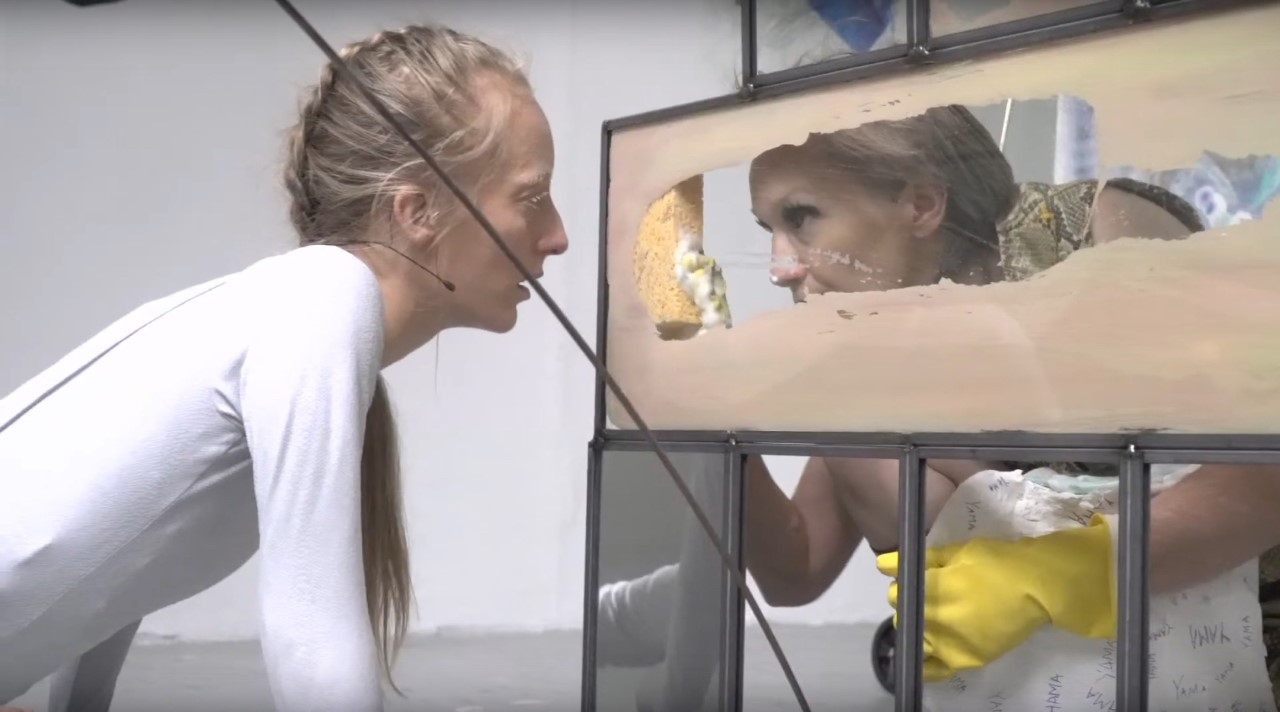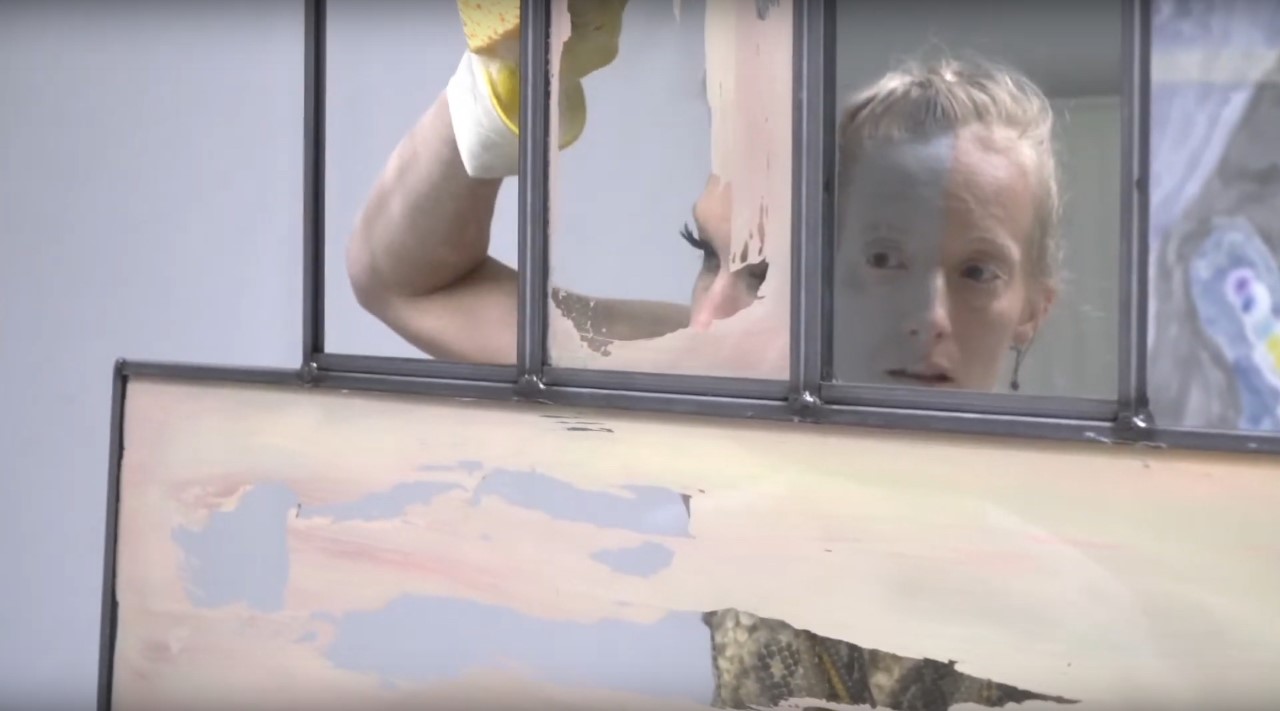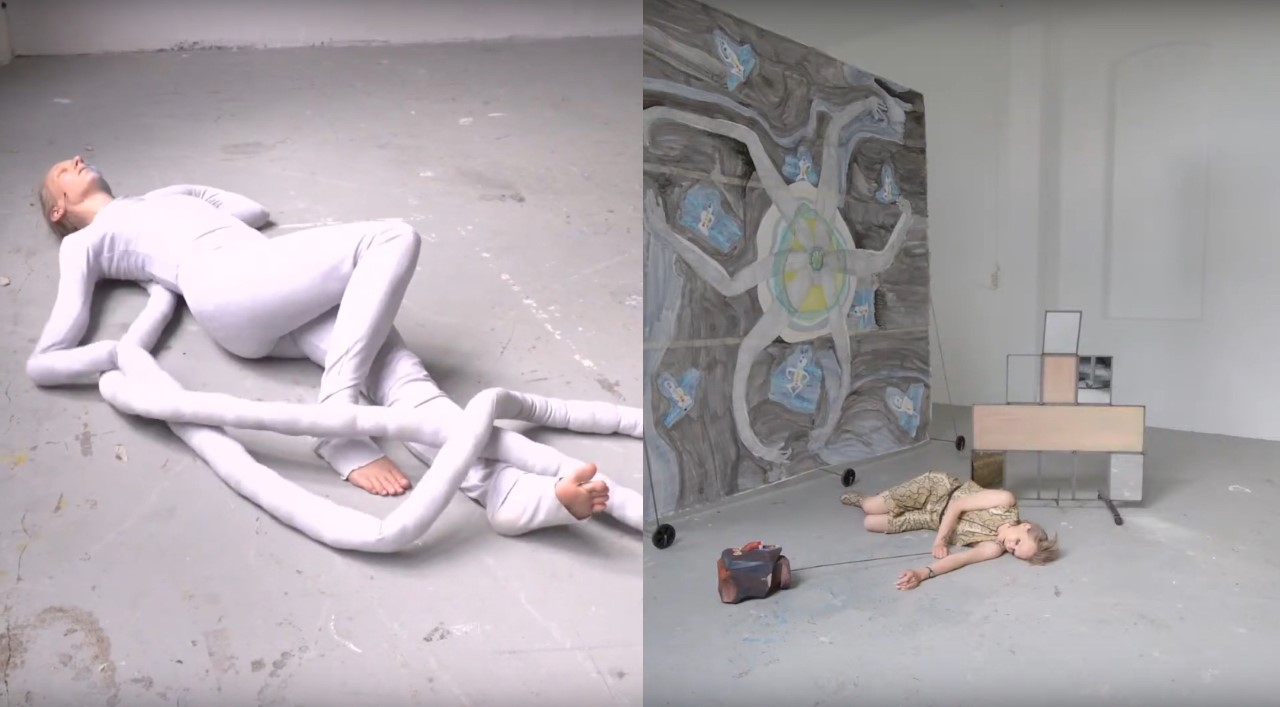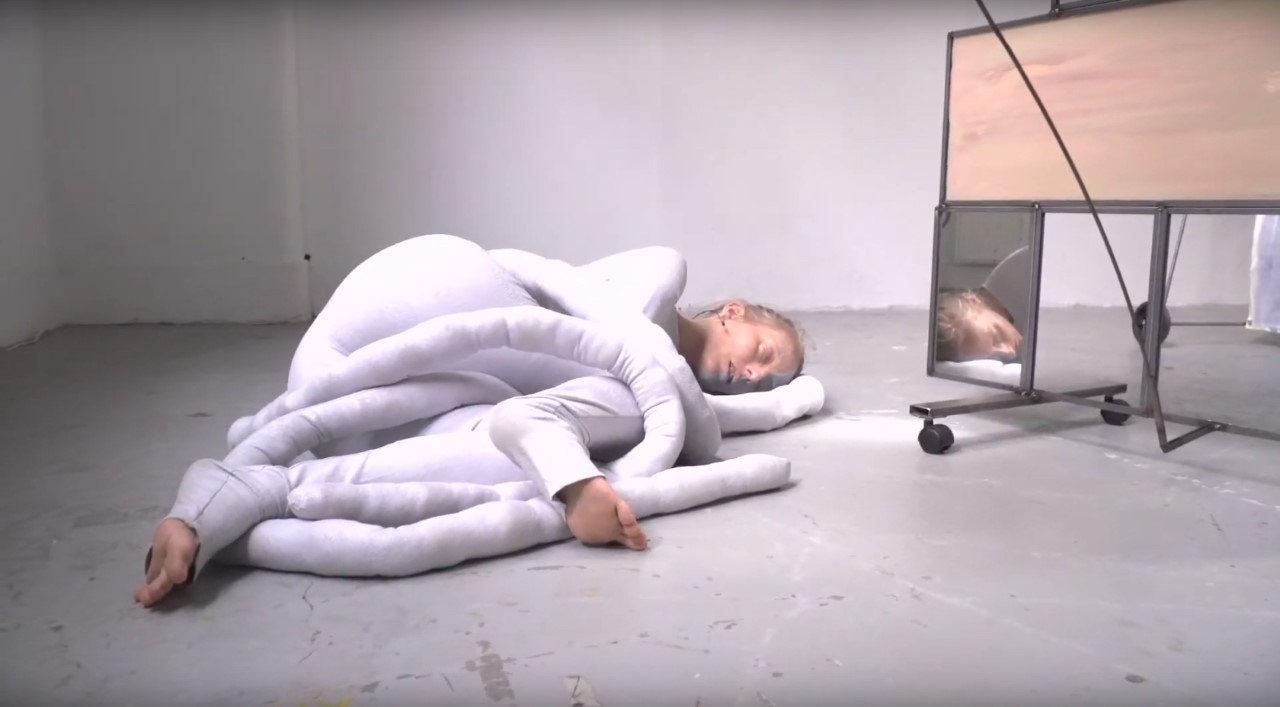










After the studio visit, I went to catch a bus to Antwerp. I live and work in Rotterdam but often commute to Belgium, where my wife works. That day I learned that the COVID-19
pandemic was a tangible reality: my bus, along with a lot of trains, had been canceled. It took many hours and great effort to reach Antwerp and, once I did, I didn’t leave for the
next three months: the border was closed, confinement was prescribed, and the whole population was put in quarantine.
A good part of the population, however, perceive the reality of the pandemic through the news that they get via mass media. They know of its existence because they are told
about it; they read the daily rising figures of new infections and casualties, awakening their social consciousness and solidarity with the virtual victims. But they cannot relate to it in any direct way; they experience it mainly as an obligation to spend weeks in confinement, as required by law.
Documentation of the performance can be viewed here.
Read A Diary of a Bad Year by David Maroto here.
After the studio visit, I went to catch a bus to Antwerp. I live and work in Rotterdam but often commute to Belgium, where my wife works. That day I learned that the COVID-19
pandemic was a tangible reality: my bus, along with a lot of trains, had been canceled. It took many hours and great effort to reach Antwerp and, once I did, I didn’t leave for the
next three months: the border was closed, confinement was prescribed, and the whole population was put in quarantine.
A good part of the population, however, perceive the reality of the pandemic through the news that they get via mass media. They know of its existence because they are told
about it; they read the daily rising figures of new infections and casualties, awakening their social consciousness and solidarity with the virtual victims. But they cannot relate to it in any direct way; they experience it mainly as an obligation to spend weeks in confinement, as required by law.
Documentation of the performance can be viewed here.
Read A Diary of a Bad Year by David Maroto here.

After the studio visit, I went to catch a bus to Antwerp. I live and work in Rotterdam but often commute to Belgium, where my wife works. That day I learned that the COVID-19
pandemic was a tangible reality: my bus, along with a lot of trains, had been canceled. It took many hours and great effort to reach Antwerp and, once I did, I didn’t leave for the
next three months: the border was closed, confinement was prescribed, and the whole population was put in quarantine.
A good part of the population, however, perceive the reality of the pandemic through the news that they get via mass media. They know of its existence because they are told
about it; they read the daily rising figures of new infections and casualties, awakening their social consciousness and solidarity with the virtual victims. But they cannot relate to it in any direct way; they experience it mainly as an obligation to spend weeks in confinement, as required by law.
Documentation of the performance can be viewed here.
Read A Diary of a Bad Year by David Maroto here.

After the studio visit, I went to catch a bus to Antwerp. I live and work in Rotterdam but often commute to Belgium, where my wife works. That day I learned that the COVID-19
pandemic was a tangible reality: my bus, along with a lot of trains, had been canceled. It took many hours and great effort to reach Antwerp and, once I did, I didn’t leave for the
next three months: the border was closed, confinement was prescribed, and the whole population was put in quarantine.
A good part of the population, however, perceive the reality of the pandemic through the news that they get via mass media. They know of its existence because they are told
about it; they read the daily rising figures of new infections and casualties, awakening their social consciousness and solidarity with the virtual victims. But they cannot relate to it in any direct way; they experience it mainly as an obligation to spend weeks in confinement, as required by law.
Documentation of the performance can be viewed here.
Read A Diary of a Bad Year by David Maroto here.
After the studio visit, I went to catch a bus to Antwerp. I live and work in Rotterdam but often commute to Belgium, where my wife works. That day I learned that the COVID-19
pandemic was a tangible reality: my bus, along with a lot of trains, had been canceled. It took many hours and great effort to reach Antwerp and, once I did, I didn’t leave for the
next three months: the border was closed, confinement was prescribed, and the whole population was put in quarantine.
A good part of the population, however, perceive the reality of the pandemic through the news that they get via mass media. They know of its existence because they are told
about it; they read the daily rising figures of new infections and casualties, awakening their social consciousness and solidarity with the virtual victims. But they cannot relate to it in any direct way; they experience it mainly as an obligation to spend weeks in confinement, as required by law.
Documentation of the performance can be viewed here.
Read A Diary of a Bad Year by David Maroto here.


After the studio visit, I went to catch a bus to Antwerp. I live and work in Rotterdam but often commute to Belgium, where my wife works. That day I learned that the COVID-19
pandemic was a tangible reality: my bus, along with a lot of trains, had been canceled. It took many hours and great effort to reach Antwerp and, once I did, I didn’t leave for the
next three months: the border was closed, confinement was prescribed, and the whole population was put in quarantine.
A good part of the population, however, perceive the reality of the pandemic through the news that they get via mass media. They know of its existence because they are told
about it; they read the daily rising figures of new infections and casualties, awakening their social consciousness and solidarity with the virtual victims. But they cannot relate to it in any direct way; they experience it mainly as an obligation to spend weeks in confinement, as required by law.
Documentation of the performance can be viewed here.
Read A Diary of a Bad Year by David Maroto here.

























